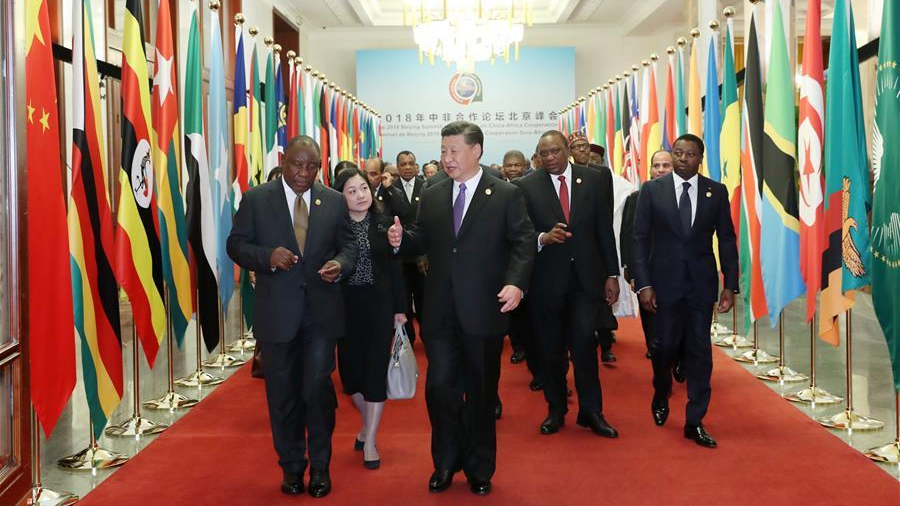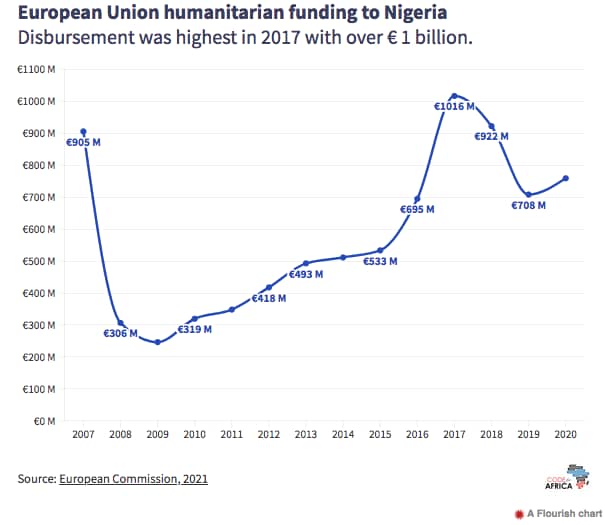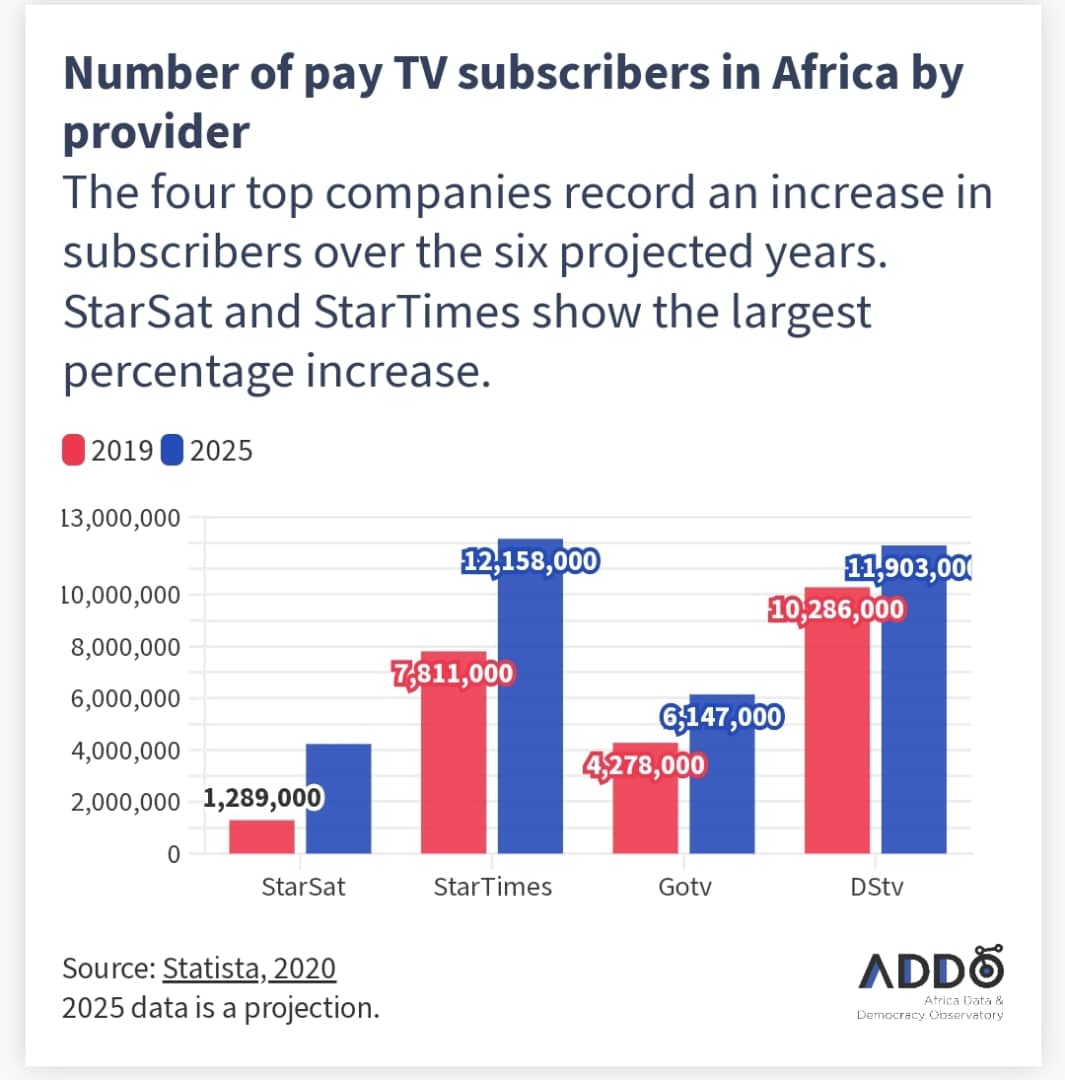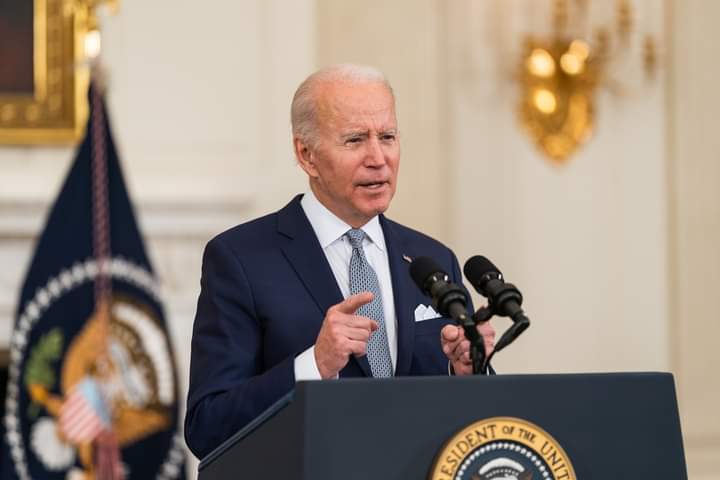As of 2018, only 11 African countries were identified as free under the Freedom Index. The index by Freedom House analyses factors that determine the status of free, partially free, and non-free nations globally.
Despite earning a spot on the list, one lingering question is how free these nations are, especially when factoring in issues like economic influence from foreign countries like China. Freedom can also be gauged based on political, media, and cultural engagements.
Across Africa, Chinese companies are leaving behind an economic footprint with a presence in most countries. The Asian economic giant presently serves as Africa’s biggest trading partner, bilateral lender, and holder of about 21 percent of Africa’s debt.
China’s economic dominance in Africa
Several factors have emerged as catalysts for China’s presence in Africa. Over the years, the economic strategy by the International Monetary Fund (IMF) to force structural adjustment on African nations has reduced the influx of aid from traditional western donors.
Advertisement
Also, conditions like democratic reforms and specific human rights considerations, including LGBTQ rights, have significantly reduced foreign aid flow into Africa.
However, China has strategically filled the aid vacuum by increasing its unconditional investment and assistance to most African governments. Again, another critical question is how unconditional is this support?
It has been pointed out by some analysts, including the authors of Banking on Beijing, that in countries that receive Chinese aid, there is an increase of 52 percent funding for the political constituency of the political leader.
Advertisement
For instance, when Mahinda Rajapaksa was the president of Sri Lanka between 2005 and 2015, with funding from the Chinese government, he significantly transformed Hambantota, his birthplace. The area was transformed into the country’s second capital by building a monumental airport in a town with 12,000 residents only. Whether such spending was cost-effective didn’t matter.
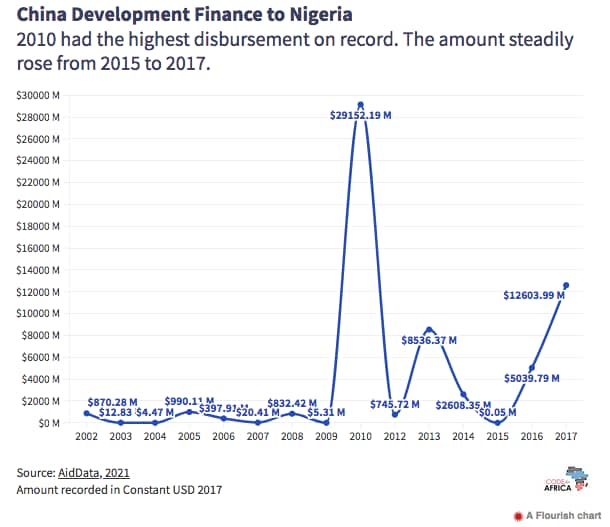
In 2007, Robert Blake, United States ambassador to Sri Lanka, commented on what he regarded as a waste of resources.
“An empty port, an empty airport, and an empty vast convention centre would not generate the benefits that Hambantota needs, and may, if constructed, be considered the president’s folly,” he said.
Advertisement
Nothing in such an investment speaks of bilateral gains; an airport reported having cost $210m, with monthly revenue of $123. In its usual diplomatic rhetoric, the Chinese government insisted that China – Sri Lanka cooperation is mutually beneficial. China further signed 20 other bilateral agreements with the country, including a $1.4 billion funding for a port city in Colombo.
Taking a critical look at Nigeria, data from Debt Management Office, as of September 2021, stipulates that Nigeria’s debt to China is $4.1 billion. These loans from the Chinese government were predominantly used to enhance transport infrastructure.
Just like the Chinese government describes its relationship with Sri Lanka as bilateral, the governments of both Nigeria and China often describe their engagement as a “win-win”. But many economic analysts, including Godiya Pius Atsiya and Marietu Tenuche, in their journal – Nigeria-China Economic Relations and Development in Africa, 2006-2016, noted that the economic relationship between the two countries has been characterised by inequalities.
The inequality is largely due to the nature of goods traded, dependency on a single product such as oil without diversification, loans, poor implementation, and evaluation processes.
Advertisement
How can we classify the Nigeria-China trade relationship as bilateral when Nigeria sells crude oil to China and, in turn, buys manufactured goods?
The inequality in the partnership is more pronounced within the textile industry. For example, in Kano, one of the main textile cities in northern Nigeria, an estimated 28,000 residents lost their jobs to Chinese imports as of 2015. The textile and shoe-making industries in Aba have also lost their significance and contribution to the nation’s GDP mainly due to Chinese imports.
Advertisement
Available data points in the direction that trade flows are in China’s favour, with the Asian country recording a trade surplus of about $17.5 billion between 2015 and 2018 alone.
Political influence
Some have argued that continuous lending is a trap through which China manoeuvred into the political spaces across Africa. In Nigeria, a 2023 presidential aspirant from the ruling All Progressives Congress (APC), Rotimi Amaechi, was accused of being sponsored by the Chinese government.
Advertisement
Upon his declaration to vie for the top seat, allegations sprung in the media claiming that the Chinese government had shown considerable interest in sponsoring his presidential ambition.
The claim was first published by AljazirahNews.com, a Nigerian news platform that mirrors Qatar-based Aljazeera.com.
Advertisement
The report was published on April 16, 2022, with the headline, “UNCOVERED: China Set To Sponsor Amaechi For President”. The publication claimed that China views Amaechi as a strong ally having protected and advanced their interest economically in Nigeria with several multi-billion-Naira projects
Following the report, the Chinese embassy in Nigeria refuted the claims while reaffirming that mutual respect and non-interference in Nigeria’s internal affairs is a core commitment of China’s diplomacy.
“The general public is kindly reminded to ignore it and keep vigilant on this kind of fake news, which is fabricated with ulterior motives,” the embassy of China refuted.
In February 2022, it was reported that a consortium of construction companies in Nigeria sued Amaechi and Abubakar Malami, the attorney-general of the federation, for the unlawful awarding of contracts – 190 km rail line construction – to a Chinese firm, China Civil Engineering Construction Company (CCECC). The disputed rail contract summed up to N91.5 billion.
Responding to similar allegations, Amaechi hit out at local construction companies who have repeatedly complained of being excluded from bidding for top contracts.
“We are not using our local contractors because they are not qualified. If you want to participate, build capacity. We can’t give you a life-threatening contract if we don’t trust your capacity”, the former minister said.
A journal on development Economics, published in 2019, established that Chinese aid disproportionately benefits politically privileged regions, most essentially during electioneering seasons when incumbents face re-elections. However, an expert on African economics has concluded that recently, the Chinese government seems to be more discreet in its approach to direct or indirect political interference.
Losing national assets to the Chinese government
Many financial experts have equally cautioned on the risks of losing critical national assets to China should countries default in payment. The development in Uganda exemplifies the dangers of borrowing from China.
The Ugandan government was forced to surrender its only international airport to the Export-Import Bank of China for failing to repay a $207m loan obtained in November 2015.
According to the China Africa Research Initiative, 50 of 54 countries in Africa have taken loans worth $153.4 billion from Chinese agencies between 2009 and 2019. Uganda now joins Sri Lanka, Malaysia, and the Maldives, who have been stuck in the Chinese debt trap created by Belt and Road Initiative conditions.
Human rights and environmental influence
Over the years, several cases of ill-treatment of Nigerian workers by Chinese employers have also surfaced. For instance, with the help of open source investigation tools, one can easily recall the report of a whistleblower, who alleged Inner Galaxy Group, a Chinese company in Abia state, mistreated and sexually abused workers with the utmost sense of disregard for labour laws.
One of the cases that emerged included a worker whose right leg was amputated due to injury while working on the plant. Rather than being compensated by the company, he was sacked. Such allegations speak of the inability of the Nigerian government to protect its labour force through appropriate laws.
In as much as many Chinese investments have aided trade and commerce, and of course, in several cases, helped to create employment in localities where the companies are situated, there are reported cases of environmental pollution.
In 2021, the Africa China Reporting published a report detailing WeWood, another Chinese firm engaged in ethanol production, discharging its toxic waste into a pit that allegedly killed three in the Omotosho Forest Reserve in Ondo state. The company’s community and public relations officer confirmed that the waste spill surged during the rainy season, polluting rivers.
Discharging the waste in the Ufara River in Ondo state has led to; the end of fishing activities, unavailability of drinking water, and lack of water for domestic/household uses. The number of residents affected by the pollution of the river was averaged at 6,000.
Nigerian students benefit from Chinese scholarships
One of the positives of the Nigerian-Chinese partnership is the scholarship opportunities it has opened for students studying in Chinese universities.
According to the Chinese Embassy in Nigeria, about 700 Nigerian students have benefited from scholarships since 1987. The multiplier effect of these scholarships lies in the potential to advance the development of African nations through knowledge transfer.
As of 2019, about 6,845 students were enrolled in tertiary institutions in China, and according to the Chinese embassy in Nigeria, 512 were sponsored by the Chinese government. The scholarship covered students studying for master’s and doctorate degrees in agriculture, engineering, and medicine, among other fields of study.
In addition, it is mandatory for students to have a basic understanding of the Chinese language, as the courses are taken in Chinese. To make these more accessible, the Chinese government established several language teaching institutes in Nigeria including the; China Culture Centre in Abuja, Confucius Institutes in Nnamdi Azikwe University, and the University of Lagos.
The Chinese influence on culture via media
From time immemorial, the media has been a reliable tool for influencing conversation, perception, and, more importantly, culture. Recently, the Chinese government has strategically been wielding its soft power via the media.
Due to the economic realities in many African countries, the sheer financial power displayed by the Chinese is difficult to fend off. This soft power is evident in the scholarship training offered to African journalists, free cable TVs in African homes, provision of technical assistance to broadcasters and regulatory boards, buying of existing media houses, and setting up media enterprises like the case of StarTimes.
In 2015, Chinese President Xi Ping launched the access satellite TV project for 10,000 villages. The project was targeted at pushing digital television to low-income communities in Africa. In many communities like Kenya where the project seems to have taken off, StarTimes TV is installed for free. This strategy has significantly ensured that more Chinese narratives – portraying the country as a wealthy, modern, and urban place dominate. Additionally, the content also covers entertainment like Chinese drama and Kung Fu.
Besides broadcasting Chinese content alongside African national channels, StarTimes also produces more of its content in local languages like Swahili. Many foreign competitors like MultiChoice are not as aggressive as their Chinese counterparts. StarTimes, for instance, wooed customers with cheap TV packages with more channels. This strategy alone has relegated competitors in the continent.
Concerns have also been raised about the Boomplay music streaming app, owned by two Chinese companies. The app has grown to become Africa’s largest music streaming platform with over 46 million users.
Others have pointed out the need to pay more attention to digital TV platforms that combine soft power strategies toward the monopolisation of public discourse. Unlike other satellite TV bundles like South African-owned MultiChoice, CNN International is not available on any StarTimes bouquet; Fox News is the only voice reporting happenings in America. Going by the projections of Digital TV Research, by 2024, StarTimes will be ahead of MultiChoice, given that its subscriber base will jump to 14.85 million.
Beyond diplomatic rhetoric and sensationalism, it has been evidently established that China is tactically increasing its global influence through a series of pseudo bilateral relationships with Africa. This agenda has been made possible due to the lack of political will to cooperate among African leaders.
But for how long will Africans suffer from the inability to collaborate, and foster a sustainable pan-African agenda toward growth and stability?
Until Africans wake up and smell the coffee, China’s influence across the continent will likely wax stronger. The bilateral relationship can be beneficial and healthier with people-oriented leadership, and trade policies that truly seek to empower Africans in the long haul.
This article was produced with mentorship from the African Academy for Open Source Investigations (AAOSI), to tackle disinformation that undermines our democracies, as part of an initiative by the International Centre for Journalists (ICFJ) and Code for Africa (CfA). Visit http://academy.africa/aaosi for more information.

